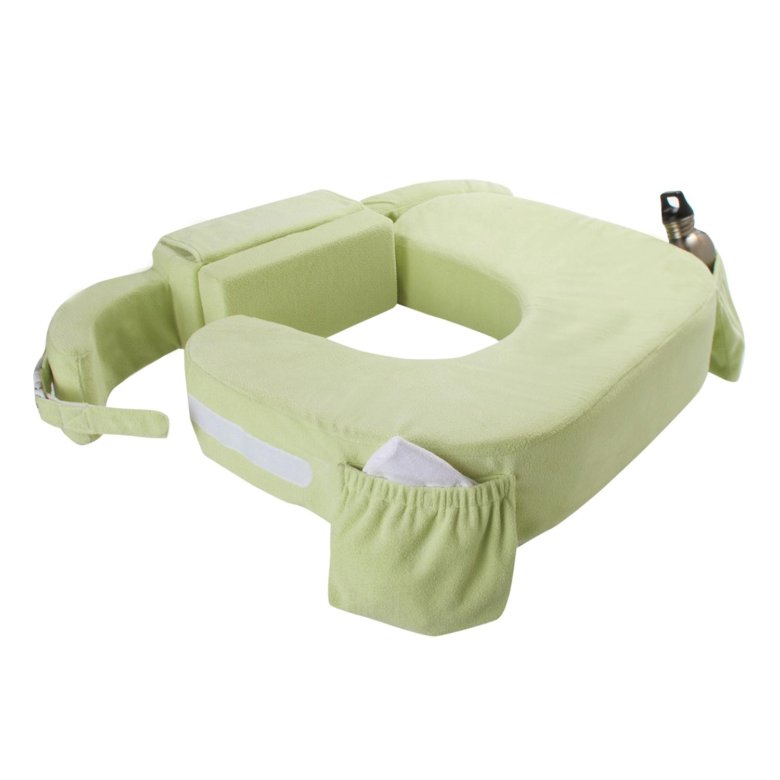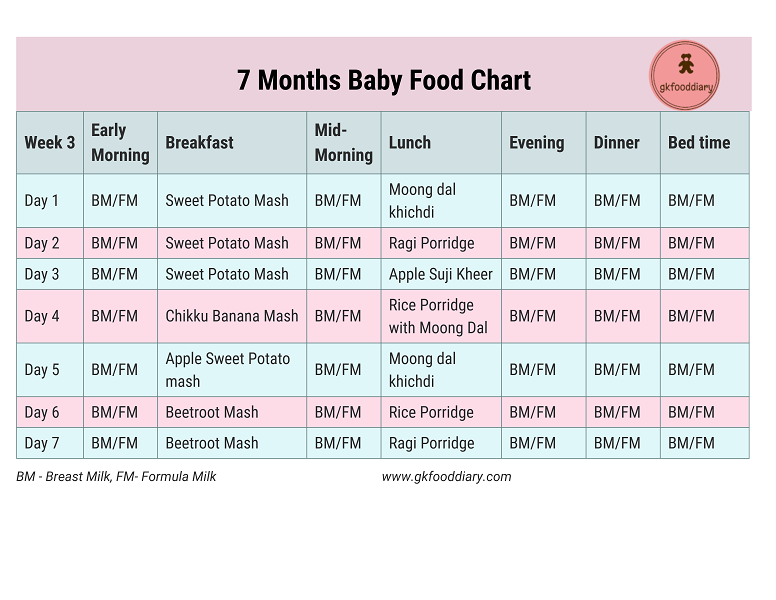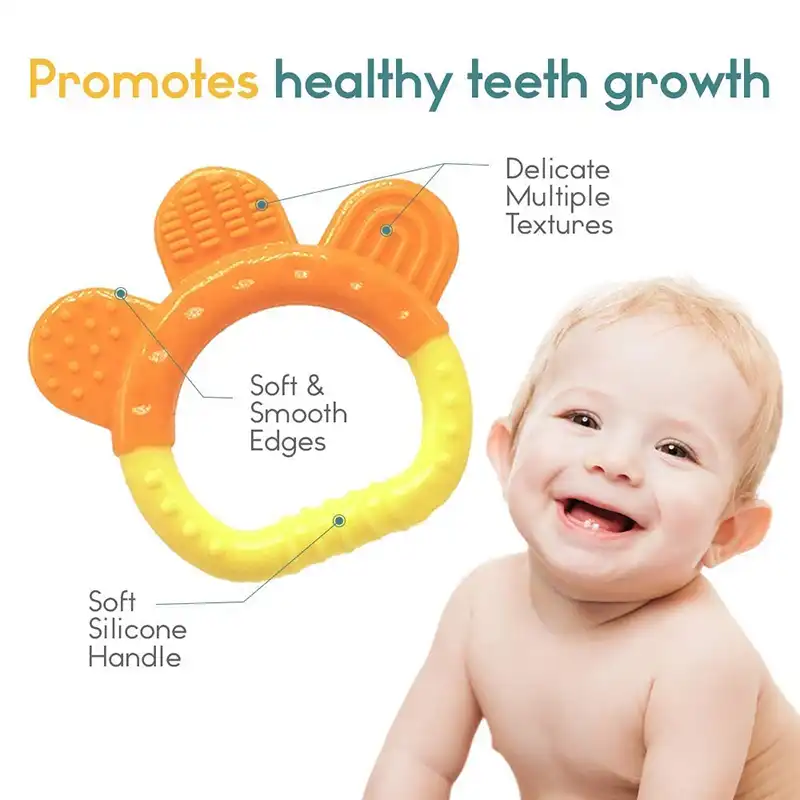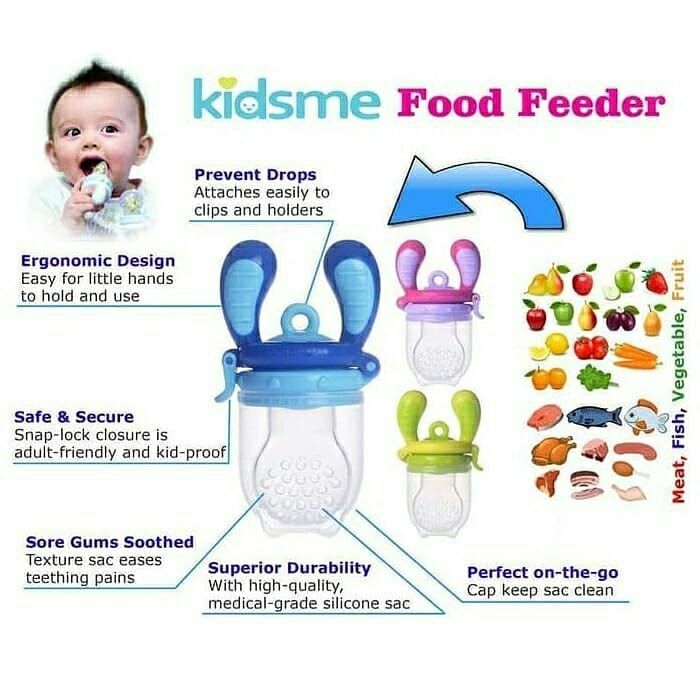Newborn baby sleeping not feeding
Sleepy Baby – Why And What To Do
Nobody likes to disturb a sleeping baby, but sometimes a baby can be too sleepy for their own good. At times like this they may need you to take action.
Your newborn baby needs to nurse actively for one or both breast at each feed. Offer the second breast after they seem to have finished at the first, although they may not want both sides at every feed.
What makes a baby sleepy?
Recovering from birth: In the first few days, some babies are sleepy or uninterested in feeding. It’s especially true for small babies, after a difficult labour or birth, or if you received drugs for pain relief during labour.
Jaundice or an infection may make a baby sleepy. Newborn jaundice is normal but frequent breastfeeding helps prevent it becoming a problem.
Not enough milk: Your baby may sleep to conserve energy if they are not getting enough food. They may also sleep longer that is good for them if they are apart from you.
Is my baby too sleepy?
To gain weight and stimulate your milk production, expect your newborn to:
- Breastfeed effectively at least 8–12 times in 24 hours
- Feed actively from one or both breasts at each feed, swallowing regularly.
- Nurse at least every 2–3 hours from the start of one feed to the next, with one longer sleep of 4–5 hours.
- Have periods where they breastfeed on and off for several hours, usually in the evening.
- Gain weight from day 4 and regain birth weight by about two weeks.
Look at our page Beginning Breastfeeding for more information. If your baby is too sleepy to do all these things they may need your active help to ensure they are nursing effectively and getting enough milk.
Is my baby getting enough milk?
A baby may lose up to 7% of their birth weight during the first few days. From around day 3-4, expect them to start gaining, and to regain their birth weight by 10-14 days. Many breastfed babies gain around 200-235g (7-8oz) as week for the first 2-3 months. If you baby consistently gains less, or they haven’t regained their birthweight by 14 days, seek skilled help to assess whether they are getting enough milk. What comes out is a sign of what has gone in, so counting dirty nappies can be a useful guide between weighing sessions. For more information to help you know if your baby is getting enough milk in the first few days, you could read our article here about signs of effective feeding in the early days. And then after the first few days, this article will help you decide if your baby is getting enough milk.
If you baby consistently gains less, or they haven’t regained their birthweight by 14 days, seek skilled help to assess whether they are getting enough milk. What comes out is a sign of what has gone in, so counting dirty nappies can be a useful guide between weighing sessions. For more information to help you know if your baby is getting enough milk in the first few days, you could read our article here about signs of effective feeding in the early days. And then after the first few days, this article will help you decide if your baby is getting enough milk.
| Age | Dirty nappies per 24 hours |
|---|---|
| 1-2 Day | 1 or 2 greenish-black tarry meconium poos |
| 3-5 days | At least 3 green transitional poos |
| 5+ days | At least 3-5 yellow, loose unformed poos the size of a 2p coin or larger |
Remind your baby to nurse
If your baby is too sleepy or groggy to rouse themselves every few hours, you will need to wake them to feed to ensure they get enough milk. This will be easier if your baby is in a light sleep cycle: watch for rapid eye movements under their closed eyelids, arm and leg movements, sucking activity and changes in their facial expression.
This will be easier if your baby is in a light sleep cycle: watch for rapid eye movements under their closed eyelids, arm and leg movements, sucking activity and changes in their facial expression.
- Aim for your baby to feed at least 10 times in 24 hours, including at least once at night
- Encourage active nursing on the first breast, watching and listening for signs of swallowing.
- Use breast compression (see below) to keep your baby nursing actively.
- Offer the other side in the same way. You can switch back and forth several times if it helps your baby stay awake and feed.
- Encourage cluster nursing whenever your baby is more alert.
- Give expressed milk if they aren’t feeding well.
- Keep them close by—day and night—so they don’t sleep too long and you don’t miss their feeding cues.
Also try
- Dimming the lights and keeping your surroundings quiet and peaceful.
- Keeping the room temperature at around 18°C or undressing your baby a little if the room is warm.
 Being too hot can make a baby sleepy.
Being too hot can make a baby sleepy. - Unwrapping any blankets.
Newborn feeding cues
Signs of interest in feeding include:
- Mouth movements; smacking or licking his lips
- Sucking on lips, tongue, hands, fingers, toes, toys or clothing
- Rooting, head bobbing or nuzzling against whoever is holding them
- Fidgting and squirming a lot
- Fussing
- Crying – a late sign of hunger.
Do offer feed generously. A newborn won’t find it easy to feed well, if they have to wait and reached late hunger signs.
Helping your sleepy baby
Positioning and attachment
Getting a deep, comfortable latch is crucial. If your baby is not latched on well at the breast, they will have to work harder to get your milk. They may tire easily and fall asleep. Sometimes just a small adjustment to the way your baby comes to the breast can make a huge difference. An LLL Leader can provide individual suggestions tailored to your circumstances. If your breasts are engorged, gently hand express a little milk and/or ease swelling back with your fingertips to make it easier for your baby to latch on deeply and prevent you getting sore. See our longer article about Positioning and Attachment for more help on how to help your baby latch well, feed effectively and be comfortable for you.
If your breasts are engorged, gently hand express a little milk and/or ease swelling back with your fingertips to make it easier for your baby to latch on deeply and prevent you getting sore. See our longer article about Positioning and Attachment for more help on how to help your baby latch well, feed effectively and be comfortable for you.
Copyright Suzanne Tobin
Seek skilled help early on if you are finding breastfeeding difficult or uncomfortable.
Laid back breastfeeding
Try letting your baby lie on your body with their chest and tummy against you as you recline at about 45 degrees. If they can snuggle up close to your chest for periods of time, even when sleepy or during light sleep, they will often instinctively seek the breast and attach deeply and comfotably even during light sleep. This can be done skin-to-skin or with you and your baby lightly clothed. Watch for signs your baby is stirring and gently encourage feeding. Spending time relaxing like this can make a real difference to how well your baby feeds and how much milk you make. Our page on Comfortable Breastfeeding has more ideas.
Spending time relaxing like this can make a real difference to how well your baby feeds and how much milk you make. Our page on Comfortable Breastfeeding has more ideas.
Breast compression
If your baby starts to doze at the breast, this technique will help him breastfeed actively and take more milk.
- Cup your breast with your hand, near your chest wall, thumb opposite fingers in a C shape. Keep your hand well back from the nipple area.
- Wait while your baby breastfeeds actively, with their jaw moving all the way to his ear. When they stop swallowing, compress your breast firmly. They probably start swallowing again. Hold it squeezed until they stop nursing actively, then release your hand.
- Rotate your hand around your breast and repeat step 2 on different areas of the breast as needed. Go gently—this should not hurt.
Try switching breasts at least two or three times during each feed—when your baby comes off the first breast on their own or when breast compression no longer keeps them breastfeeding actively.
Express milk for your baby
Until your baby gets the hang of feeding you may need to do some work for your baby. If they aren’t latching at all, or is not feeding well and gaining weight, then expressing your milk will help establish milk production. The earlier you start, the sooner you’ll produce plenty of milk. Hand expression is often easiest at first but when your milk comes in combining hand expression with pumping can be most effective.
Giving expressed milk
First, encourage your baby to nurse at both breasts. Watch for swallowing and use breast compression an switch nursing until they stop drinking and start to doze.
Next, give your baby expressed milk until they have had enough. (For more on how to give additional milk, our article here). Giving your baby your expressed milk after breastfeeding can help them overcome sleepiness and feed more effectively next time.
Then, once your baby has settled, express from both breasts switching back and forth and using compressions and hand expression to get the available milk. Store this milk in the fridge ready for the next feed.
Store this milk in the fridge ready for the next feed.
Aim to complete this process within about an hour.
Avoid bottles and dummies
You can give small amounts of expressed milk using a spoon, flexible feeding cup or syringe. If you decid to use bottles for larger amounts, you can give the bottle in a way that helps protect breastfeeding. For more information on ways to give your baby milk and bottles see our article on Bottles and other tools. An alternative is to use a nursing supplement: this acts like a straw to deliver extra milk through a tube along your breast as your baby nurses, avoiding the need for bottles. Our article Nursing Supplementers explains more.
Don’t give up too soon
If your baby doesn’t respond quickly to your efforts to get him to breastfeed more often and more effectively, don’t give up. Keep your baby fed, Keep your supply protected and Keep your baby close. You may find our article on Getting breastfeeding back on track after a tricky start helpful. Check with your doctor to eliminate any medical reasons and contact your local LLL Leader to find one-to-one breastfeeding help. You can find support and encouragement from breastfeeding mothers in your local LLL Group too.
Check with your doctor to eliminate any medical reasons and contact your local LLL Leader to find one-to-one breastfeeding help. You can find support and encouragement from breastfeeding mothers in your local LLL Group too.
Written by mothers of LLLGB. Photos courtesy of Ellen Mateer and Suzanne Tobin.
Further Reading
Comfortable Breastfeeding
Positioning and attachment
Engorged Breasts – Avoiding & Treating
Hand Expression of Breastmilk
Is my baby getting enough milk?
My Baby Needs More Milk
Nursing supplementers
Jaundice in Healthy Newborns
Getting back on track after a tricky start – the Three Keeps
My baby won’t breastfeed
Bottles and other tools
Other websites
Biological Nurturing™: www.biologicalnurturing.com/video/bn3clip.html
Natural Breastfeeding Position video, Nancy Mohrbacher:
Benefits of skin-to-skin contact: www.kangaroomothercare.com
Books
The Womanly Art Of Breastfeeding. LLLI, London: Pinter & Martin, 2010
LLLI, London: Pinter & Martin, 2010
This information is available to buy in printed form from our shop.
Copyright LLLGB 2020
Updated June 2022
Signs of effective feeding in the early days
Most babies are keen to feed in the first 90 minutes after they are born especially if they are in skin-to-skin contact with their mum.
If your baby is too sleepy to take this first feed or needs medical attention, it’s a good idea to ask your healthcare team to show you how to hand express and give the colostrum by teaspoon or syringe. He may sleep for a few hours after this first feed – feel free to cuddle him and wake him if you want to feed. He may feed four to five more times in the first 24 hours.
After that first 24 hours we know that babies who are getting adequate amounts of milk will wake to feed at least eight times over a 24-hour period (10 to 12 times being more likely) so it is valuable to keep an eye on numbers and offer feeds even if the baby does not seem to be actively asking.
Babies need to feed frequently; this encourages your milk to increase in volume. Once your milk is coming in, after about 48 hours or so, you may hear your baby swallowing. You may also notice that your breasts feel fuller and that after your baby has fed they soften a little.
Babies who are excessively sleepy, reluctant to wake or who only wake briefly and suckle for very short times will need some extra milk, and your colostrum is best. Learn how to hand express and give your expressed colostrum frequently, until your baby is waking, keen to latch and is doing active sucking and swallowing, with pauses.
Your baby will be content and satisfied after most feeds and will come off the breast on his own. A period of cluster feeding each day (or night) is common. When a baby is cluster feeding he may be very keen to breastfeed a lot and not want to settle to sleep for three or four hours.
However, if you feel he is never really satisfied after feeds, trust your instincts: some expressed milk might help. Seek help with positioning and attachment so that your baby can learn to extract milk efficiently himself.
Seek help with positioning and attachment so that your baby can learn to extract milk efficiently himself.
You can get support from LLL here.
These videos may help with positioning and attachment:
https://www.youtube.com/watch?v=wjt-Ashodw8
https://vimeo.com/11692547
There are more videos along with images and descriptions in our post: Positioning & Attachment
Keeping an eye on his nappies can help you know if he is getting enough milk
Poos
At first poo is sticky, black, and almost tar like. This will become greenish, less sticky, and wipe off your baby’s skin easier! By day three/four you will notice the poo change colour to mustard yellow, and it will be soft and seedy. Two or more of these poos every 24 hours are a sign your baby is getting enough milk in the early days. After three full days (72 hours) your baby should produce at least three poos per day.
By five to six weeks your baby will develop his own pattern and may go days without a poo. Providing he is gaining weight ok, poos are no longer as important for being confident he is getting enough milk.
Providing he is gaining weight ok, poos are no longer as important for being confident he is getting enough milk.
Wees
At first your baby may not pass much urine but this increases each day. If you have had extra fluids during labour and birth your baby may produce extra urine for the first 24 hours or so. By day two look for two wet nappies over 24 hours, days three and four look for three or more wet nappies each 24 hours. By the time your baby is five days old, wet nappies should be more frequent, usually six or more over 24 hours. If your baby’s urine output is less than this or you see red/orange specks in your baby’s nappy, (these are called urates) your baby could do with some more milk.
It can be tricky to tell if disposable nappies are wet – after five full days, when copious milk comes in, they should be heavy.
Many disposable nappies have a faint line down the middle of the nappy which changes colour when wet.
If you are worried your baby isn’t getting enough milk, consider hand expressing your milk. You can feed the expressed milk by teaspoon, cup or directly into his mouth. With some extra milk your baby will generally start to wake more and feed more actively. If you are concerned that your baby isn’t well contact your midwife or GP.
You can feed the expressed milk by teaspoon, cup or directly into his mouth. With some extra milk your baby will generally start to wake more and feed more actively. If you are concerned that your baby isn’t well contact your midwife or GP.
There is more information in these posts:
Is my baby getting enough milk?
My baby needs more milk
Breastfeeding concerns
Occasionally there is reason to be concerned about a baby’s weight gain or the way he is breastfeeding. Here are some signs that your baby may not be getting enough milk at the breast:
- If your baby has not regained his birth weight by two weeks of age
- If baby is passing less urine and pooing less frequently than described above, or his poos remain dark, then seek additional support and give more milk. Older babies may have bowel movements less frequently
- If baby is nursing fewer than eight to twelve times in 24 hours in the early weeks
- If baby is not waking to nurse at night
- Your baby is never satisfied after feeds
- Breastfeeding is very painful all the way through a feed
- You don’t feel signs of your milk coming in after day three
If you are concerned about your baby or s/he shows any of these signs, seek help with breastfeeding from your healthcare team and La Leche League.
Find LLL support here or call our national helpline on 0345 120 2918.
Any of the following are signs of dehydration and the need to seek medical help immediately:
- less than two wet nappies in 24 hours from the third day
- listlessness
- lethargy
- weak cry
- skin loses its resilience (when pinched it stays pinched looking)
- dry mouth, dry eyes
- the fontanel (soft spot) on the head is sunken or depressed
- fever
This list is not exhaustive and we stress that you should consult your Doctor, Midwife, Health Visitor, or other healthcare provider if you have any concerns about the health of your baby. Breastfeeding support can continue alongside any necessary medical treatment. A La Leche League Leader (breastfeeding counsellor) can provide further information on breastfeeding management. Get LLL support here.
A newborn sleeps a lot and eats little - A newborn sleeps a lot and eats a lot
Almost every woman at the stage of pregnancy imagines how her life will change, what her baby will be like and how their joint days will be organized.
And conceived, the expectant mother builds in her imagination a certain “ideal” picture, supported by media images and commercials - a constantly smiling or sweetly sleeping baby.
Undoubtedly, babies really sleep sweetly and smile with the most sincere smile. But this is not always the case.
THE FIRST MONTH OF LIFE - DONATION
The first month, and even the first three months of a child's life is called the period of "carrying out" - the stage of adaptation of the baby to the outside world, as well as the young mother getting used to new living conditions, to her new role, to the changed rules of life associated with the birth of a baby.
Many young mothers prepared for the birth of a baby already know a lot thanks to the availability of information about the psychophysiology of the newborn.
And, of course, when a mother has information about how much a small child should sleep, she somehow expects this from her baby too.
Let us remind you that a healthy full-term baby of the first year of life sleeps about 15-18 hours a day. Of these, 8-10 occur at night and 6-9 during the day. In fact, a newborn baby sleeps a lot of the time - most of the day.
Of these, 8-10 occur at night and 6-9 during the day. In fact, a newborn baby sleeps a lot of the time - most of the day.
The period of wakefulness in a baby from birth is quite short - 20 minutes, increasing by the end of the first month of life to 45 minutes (maximum - up to an hour).
Most of the waking time, especially in the first weeks of life, the child spends with the mother in the process of feeding - when he is awake, he eats.
Breastfed babies need to be fed every 1.5 hours during the day (max 3) and every 3 hours at night (max 5). Such time intervals are due to the small volume of the newborn's stomach and the rapid digestibility of breast milk, the child needs to eat often.
Lack of food for more than 3 hours during the day and more than 5 hours at night is dangerous and fraught with dehydration of the child, and besides, if a small child sleeps without waking up for so long, this is an occasion to more closely monitor his condition and tell the pediatrician about it.

All this information is in the public domain, and after reading it, young mothers experience a whole range of feelings - from surprise to fear and confusion at the slightest deviation from the "norm" if her baby does not fit into them, for example, he is awake a lot and eat a lot or, conversely, eat little.
WHAT IT MEANS "LESS SLEEPING"
Let's take a closer look, because often the concepts of "little" and "constantly" are quite subjective criteria.
- It is important to know that the baby on the breast can sleep while sucking - in this case the baby can sleep, although the mother may identify this period as being awake.
- Hour count. In this case, it is better not to focus on subjective feelings. It often seems to tired and sleep-deprived parents that “the child did not sleep at all,” although if you count the hours objectively, you can find out that this is not the case.
 To calculate sleep time, you can use programs for smartphones, for example, Baby Tracker or any other adapted for these tasks. Recording the baby's sleep hours will help the mother know for sure how many hours he sleeps.
To calculate sleep time, you can use programs for smartphones, for example, Baby Tracker or any other adapted for these tasks. Recording the baby's sleep hours will help the mother know for sure how many hours he sleeps.
VIDEO LESSON
Baby sleep from 0 to 3 months
More
HOW TO KNOW IF YOUR BABY EATS MUCH?
A bit of theory about the physiology of breastfeeding. In the first three months of life, lactation is established in a breastfeeding mother. Milk comes on the 3rd-5th day of a baby's life. During this period, the colostrum that the baby ate immediately after birth changes its composition and becomes early (transitional) milk. During this period, the arrival of milk is still completely controlled by physiology - the endocrine system of the woman's body, it will remain even if the mother does not feed. And it is this period that is extremely important for establishing lactation - it is very important to put the baby to the breast as often as possible so that he eats, and that, thanks to sucking, receptors sensitive to prolactin are established in the mammary gland. On the second or third week (6-13 days after birth), milk becomes late transitional and only by 14-23 days - mature. Thus, lactation gradually shifts from endocrine control to autocrine control (controlled by the frequency of suckling). This means that the more the baby will breastfeed and eat, the more milk he will receive and vice versa - the less often he eats, the greater the likelihood of lactostasis and a decrease in milk in the breast.
On the second or third week (6-13 days after birth), milk becomes late transitional and only by 14-23 days - mature. Thus, lactation gradually shifts from endocrine control to autocrine control (controlled by the frequency of suckling). This means that the more the baby will breastfeed and eat, the more milk he will receive and vice versa - the less often he eats, the greater the likelihood of lactostasis and a decrease in milk in the breast.
Thus, the baby, by frequent sucking, stimulates the mammary gland to produce milk - this is the most important process that is absolutely normal and correct from the point of view of the physiology of the postpartum period of both the mother and the newborn.
WHAT SHOULD I DO IF THE BABY IS ABOVE THE RATE?
What to do if, using observations and time-counting programs, it turns out that the baby is awake more than normal and does not stop breastfeeding.
First of all, it is important to consult with the attending pediatrician and possibly a neurologist to make sure that the baby does not have neurological and physiological health problems.
Many children sleep restlessly and stay awake more than the norm if they had some difficulties during childbirth (entanglement, hypoxia), separation from their mother in the postpartum period, and so on. In this case, they especially need constant contact with their mother in order to sleep peacefully.
It is also important to make sure that the sleeping conditions are organized correctly - the sleeping room is sufficiently ventilated, not hot (no more than 22 degrees), humid enough (50-60%), the baby does not overheat during sleep (comfortable pajamas for the season, no cap ).
HOW CAN YOU HELP YOUR CHILD?
- Recreating the conditions of the uterus - tightness (sleep in a cradle, in a sleeping bag or in a sling), darkness, motion sickness.
- Feeding on demand. At this age, the baby can be fed as often as desired, without adhering to the feeding regimen. He can eat quite often.

- Maximum contact of the baby with the mother (sling helps the mother to have some freedom of action)
- Sleeping next to mum in side crib with side down promotes closeness between mum and baby and is safe.
Tips for worried moms:
Many new mothers often worry about the “norm” and get scared when things don't go the way they should.
- The first recommendation to all new mothers is to ignore the norms, especially those norms that are inherent in the children of girlfriends. Every baby, like every mother-baby couple, every family is unique and what is normal for her is not necessarily normal for you. You will have your own rules. Sleep standards are a guideline. The main criterion is the well-being of your baby. It is important to help him fall asleep not when "it's time", but when you notice his signs of fatigue. Time limits are just a guideline.
- The same goes for feeding.
 There is not and cannot be "too much breastfeeding" in the first month of life. The baby can eat as much as he needs. Establishing lactation is now one of the main tasks. Let nature and the baby make it happen.
There is not and cannot be "too much breastfeeding" in the first month of life. The baby can eat as much as he needs. Establishing lactation is now one of the main tasks. Let nature and the baby make it happen.
- Rest and rejuvenate whenever possible. Fall asleep with the baby, involve relatives, spouse to help.
- Record in memory and on paper your thoughts, emotions, discoveries, impressions The first month of a baby's life will fly by very quickly, even if sometimes it seems that time is slow. Take pictures of the baby, watch his changes, because they happen every day!
If you slightly change the angle of perception of the situation, the newborn period will pass easily and naturally, and the calmer and more relaxed the mother is, the calmer the baby’s sleep will be =)
Food and Sleep Breastfeeding NormsSleep Newborn Sleep
Wakefulness and Sleep
Causes, Diagnosis and Treatment - NEARMEDIC Clinics Network
Immediately after birth, a healthy baby sleeps a lot. Most of the day is spent sleeping. The rest of the time he eats. In the first days of life, the child grows up, actively gaining weight. It remains for parents to observe, admire and perform hygiene and other care procedures.
Most of the day is spent sleeping. The rest of the time he eats. In the first days of life, the child grows up, actively gaining weight. It remains for parents to observe, admire and perform hygiene and other care procedures.
As time goes by, the sleep intervals become shorter and the time spent awake increases. A long sleep should not be alarming if the child wakes up for food, notifies you of wet diapers. But the lack of normal sleep and crying for too long after taking the usual measures serve as a signal that the baby is ill.
Frequent changes in the phases of sleep and wakefulness occur from birth to a year. Later, the schedule becomes more predictable. You can look at the newborn sleep calendar to find out what intervals of sleep and wakefulness are normal for the current period of life.
When not to worry
A healthy child starts groaning when he wakes up. These are the first signals that he wants:
- is;
- drink;
- feel parental warmth and smell;
- dry diapers.

If you immediately take the child in your arms, carry out all the usual manipulations and feed, the baby should calm down. It happens that this does not happen, and the newborn cries, refuses to eat.
One of the first causes of this behavior is intestinal colic. This is increased gas formation caused by inappropriate nutrition. Sometimes it is enough to scold the child in your arms (ideally bare belly to the warm body of the parent) or massage the tummy for the symptoms to go away. In some cases, you have to resort to special means: from medicines to medical tubes for releasing gases.
WARNING! These procedures are best done only after examining a doctor and recommending certain means. Self-medication can change the picture of the disease, if any, as well as cause unnecessary suffering to the child without the desired effect.
Causes of colic
Colic can occur in children who are breastfed, organized according to all WHO standards, mixed and full artificial. The reason is the imperfection of the gastrointestinal tract, which reacts sharply to components that are not suitable for absorption. It is always individual, therefore, nutrition is selected patiently, with the exception of those components that caused the disorder.
The reason is the imperfection of the gastrointestinal tract, which reacts sharply to components that are not suitable for absorption. It is always individual, therefore, nutrition is selected patiently, with the exception of those components that caused the disorder.
How can a specialist help?
If colic is detected, the doctor will take an anamnesis, help analyze nutrition, recommend a set of measures to improve the condition, prescribe new nutrition, medications to eliminate discomfort. The doctor will monitor the condition of the baby until it is completely normal.
The specialist will show you how to stroke your baby's tummy properly to stimulate the bowels to expel excess gas as soon as possible. He will tell you about the features of the feeding regimen and the rules for laying the newborn on the tummy in order to improve digestion and prevent regurgitation.
Symptoms
The baby cannot sleep for a long time, often wakes up. It is especially evident when the child falls asleep in the arms or on the stomach of the parents and immediately wakes up crying when trying to put him separately.
Dysbacteriosis
Another important reason that guarantees restless sleep in infants is an imbalance of bacteria in the gastrointestinal tract. After a series of tests, a diagnosis is made - dysbacteriosis. The doctor will not only prescribe treatment, but also help to identify the cause of such an unpleasant disease.
Causes:
- improper feeding;
- consequences of taking antibiotics.
With proper organization of breastfeeding, there is practically no dysbacteriosis in children, unless there is a history of taking antibiotics by the mother or infant, and also if there were no episodes of supplementary feeding or supplementation with foreign mixtures, water, and other liquids.
Breast milk is an ideal, balanced environment that contains both nutrients and bacteria that ensure proper absorption of food. If necessary, a trained doctor will talk about the rules of breastfeeding recommended by WHO according to the baby's natural biorhythm.
Artificial nutrition is also designed in such a way that it contains all the necessary substances and a complex of important bacteria. But not always a specific diet is suitable for a child, you have to sort out options, take additional drugs to improve digestion.
Causes
- overeating;
- change of type of food;
- early or incorrect feeding.
Symptoms
The baby sleeps poorly and little, waking up, he can scream for a long time, not falling asleep all night. He falls asleep already in the daytime, rather from fatigue, and periodically whimpers in his sleep, a short restless sleep. May refuse to breast or bottle, arch. Does not calm down from the usual activities that helped with colic.
A characteristic sign is green loose stools with an abundance of mucus and undigested milk clots.
The most important signal about the normalization of the condition is the established normal sleep of the child.
Otitis
Infants are prone to otitis. The imperfection of the structure of the hearing aid leads to inflammatory processes, often they have to be treated with antibiotics. The baby experiences severe pain that interferes with sleep, there are no visual signs, including temperature. In this case, the doctor suspects otitis in the first place, so an examination of the ears is mandatory.
Congenital pathologies
Some diseases do not have a pronounced picture, but their presence may disturb the child. Sleep problems are a clear sign of discomfort, which is characteristic of both normal teething and a number of serious diseases.
If the baby can be calmed relatively quickly, he sleeps enough and smiles often, then you can do without consulting a specialist. When a child sleeps only from fatigue and not very calmly, this is a signal for concern. If sleep disturbance becomes unbearable, permanent, and previous examinations and measures taken have not given a positive effect, a comprehensive examination is necessary.
Diagnoses can range from subtle defects in the musculoskeletal system to developing serious problems. Most childhood diseases are subject to treatment or at least correction, which is most effective in the initial stages. Identification of the causes, making an accurate diagnosis are necessary for taking timely measures.
The network of NEARMEDIC clinics has a maximum of necessary equipment, its own laboratory, all types of examinations are carried out, specialists of a wide and narrow profile work.
Diseases of the nervous system
Problems with the nervous system are typical in a number of cases, and often parents are morally disposed to them in advance, as they have been warned by specialists. Unusual, anxious behavior is characteristic of newborns in a number of cases:
- the child was born prematurely;
- pregnancy was accompanied by complex diseases, taking strong drugs;
- immediately after birth, the child was weaned from the mother, was treated;
- births were completed with complications;
- birth with asphyxia, hematomas and other physical disorders.

In these cases, the behavior of the baby is unpredictable, the development of the nervous system occurs in different ways. Doctors can conduct an examination, identify deviations from the norm of development, identify signs of the disease. In some cases, massage, walking, taking baths with sedatives helps. In other situations, the doctor prescribes drug therapy. This is necessary to normalize sleep, as the child's psyche suffers from insufficient rest.
Some diseases of the nervous system cannot be diagnosed before the age of one or even three years, therefore, supportive therapy is carried out aimed at calming, stabilizing sleep, and the ability to relax. Such manifestations as hypertonicity, hyperactivity and other behavioral features are leveled. The absence of these measures can seriously complicate the subsequent treatment, and timely therapy can improve the situation today and facilitate the stabilization of the condition in the future.
Benefits of normal sleep
It is especially important for a child to get healthy sound sleep in the amount of time that is normal for his age. During sleep, the most active growth occurs, the psyche calms down, body cells work. Lack of sufficient rest time primarily affects mental health, which can easily provoke physical ailments. Normalization of the child's life is also necessary for parents who also experience moral suffering, do not rest as they should, become irritable, nervous.
During sleep, the most active growth occurs, the psyche calms down, body cells work. Lack of sufficient rest time primarily affects mental health, which can easily provoke physical ailments. Normalization of the child's life is also necessary for parents who also experience moral suffering, do not rest as they should, become irritable, nervous.
Contact
NEARMEDIC network of clinics employs experienced specialists who identify the causes of sleep disorders and help eliminate them.
The doctor determines why the child is experiencing discomfort.
NEARMEDIC clinics have developed special conditions for managing the health of babies under one year old. By participating in this program, you are guaranteed medical supervision from all relevant specialists. At the conclusion of the contract, you can at any time contact the currently working specialist, get advice, examination and the necessary appointments.
Specialists have access to the latest diagnostic equipment for fast and accurate diagnosis.











